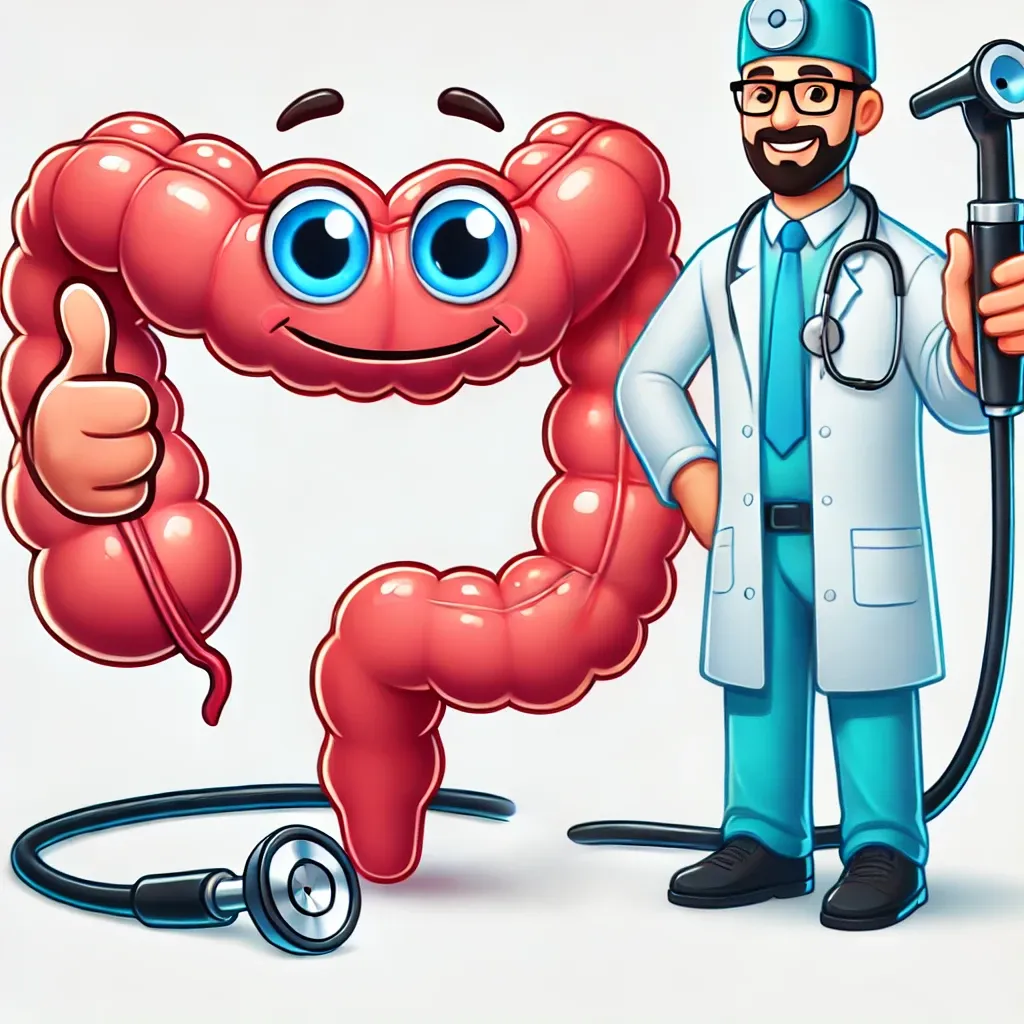The Inside Scoop: How Colonoscopies Prevent Cancer

What a Wonderful Morning it is to all of our Varrock Street Journal Community,
Colonoscopies might not be the most exciting topic, but they are one of the most powerful tools in preventive healthcare. Imagine this: a life-saving procedure that not only detects but prevents colorectal cancer. With the rising incidence of this disease, particularly among younger individuals, understanding the importance of timely screenings can truly make a difference. But where did colonoscopies originate, and why should you care? Let’s dive in.
A Brief History of Colonoscopy
The journey of colonoscopy dates back to the early 19th century, when German physician Philipp Bozzini developed the “Lichtleiter,” an early endoscopic device. However, it wasn’t until the 1960s that modern colonoscopy took shape, thanks to Dr. William I. Wolff and Dr. Hiromi Shinya. Their groundbreaking fiber-optic technology allowed for a full examination of the colon, revolutionizing gastrointestinal medicine. Before colonoscopy, colorectal cancer was often diagnosed too late, leading to poor survival rates. Today, this simple procedure saves countless lives by catching abnormalities early.
(Wolff, W. I., & Shinya, H., 1973)
Why Are Colonoscopies Done?
A colonoscopy is primarily used to detect and remove precancerous polyps before they develop into cancer. It also helps diagnose conditions like inflammatory bowel disease (IBD), Crohn’s disease, and ulcerative colitis. The ability to prevent cancer, rather than just diagnose it, sets this screening apart from many other medical tests.
According to the American Cancer Society, colorectal cancer is the third most common cancer in both men and women, but when caught early, the survival rate is over 90%. This makes regular screenings essential for early intervention and prevention.
(American Cancer Society, 2022)

The Risks of Delaying or Avoiding a Colonoscopy
Despite its effectiveness, many people delay or avoid getting a colonoscopy due to fear, embarrassment, or misconceptions. However, skipping this test can have severe consequences:
- Undetected Polyps: Small growths can turn into cancer over time without any noticeable symptoms.
- Late-Stage Diagnosis: Colorectal cancer is much harder to treat when discovered at an advanced stage.
- Higher Mortality Risk: Studies show that individuals who delay screening are at a significantly higher risk of dying from colorectal cancer.
A 2020 study published in Gastroenterology found that nearly 45% of people were unaware that colonoscopies could prevent cancer, not just detect it. Increasing awareness is key to improving survival rates.
(Rex, D. K., et al., 2020)

When Should You Get a Colonoscopy?
The U.S. Preventive Services Task Force recommends that adults at average risk begin colorectal cancer screening at age 45. However, those with risk factors such as a family history of colorectal cancer, genetic conditions, or a history of IBD may need to start earlier.
Recommended screening intervals:
- Every 10 years for those at average risk
- Every 5 years for individuals with risk factors
- Earlier and more frequent screenings if there is a family history or genetic predisposition
Skipping recommended screenings can lead to missed opportunities for early detection and treatment.
(U.S. Preventive Services Task Force, 2021)
What Happens During a Colonoscopy?
A colonoscopy is a simple, outpatient procedure that typically lasts 30 to 60 minutes. Here’s what to expect:
- Preparation: Patients follow a clear liquid diet and take a prescribed bowel-cleaning solution the day before.
- Sedation: Most patients receive light sedation to ensure comfort.
- Procedure: A thin, flexible tube (colonoscope) with a camera is inserted into the rectum, allowing doctors to examine the colon.
- Polyp Removal: If abnormal growths are found, they are removed on the spot.
- Recovery: Patients wake up with little to no discomfort and can usually return to normal activities the next day.
(Mayo Clinic, 2023)
Why This Matters
Colorectal cancer is preventable, yet it remains one of the leading causes of cancer-related deaths. The reluctance to undergo screening is largely due to misinformation and fear. However, colonoscopy is a low-risk, high-reward procedure that offers peace of mind and could ultimately save lives. Increasing public awareness and adherence to screening guidelines can significantly reduce the burden of colorectal cancer worldwide.
Here is a fun video to answer questions you may have!
Spotlight on Future Applications
The future of colorectal cancer screening is evolving with non-invasive tests like stool DNA testing and AI-driven colonoscopy imaging. Researchers are also exploring liquid biopsies that could detect cancer markers in blood samples, potentially reducing the need for invasive procedures in the future. However, for now, colonoscopy remains the gold standard.
(Zavoral, M., et al., 2022)
Reflection Questions
- What misconceptions about colonoscopy might prevent people from getting screened on time?
- How do non-invasive screening options compare to colonoscopy in terms of effectiveness?
- What can be done to increase public awareness about the importance of colorectal cancer screening?
Final Thoughts
Colonoscopies are not just diagnostic tools—they are powerful preventive measures. By staying informed and proactive, you can protect yourself and your loved ones from one of the most preventable cancers. If you’re 45 or older (or have risk factors), schedule your colonoscopy today—it could save your life.
Until next time, stay informed and stay healthy!
- The Varrock Street Journal Team
References
- American Cancer Society. (2022). Colorectal cancer screening guidelines. Retrieved from https://www.cancer.org/
- Mayo Clinic. (2023). Colonoscopy procedure. Retrieved from https://www.mayoclinic.org/
- Rex, D. K., Boland, C. R., Dominitz, J. A., Giardiello, F. M., Johnson, D. A., Kaltenbach, T., & Robertson, D. J. (2020). Colorectal cancer screening: Recommendations. Gastroenterology, 158(4), 1133-1143.
- U.S. Preventive Services Task Force. (2021). Screening for colorectal cancer: Recommendation statement. JAMA, 325(19), 1965-1977.
- Zavoral, M., Suchanek, S., Zavada, F., Dusek, L., Fric, P., & Konigsberg, O. (2022). Future trends in colorectal cancer screening. World Journal of Gastroenterology, 28(3), 245-257.
